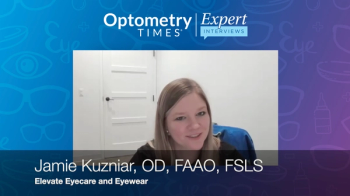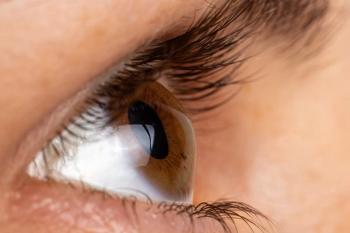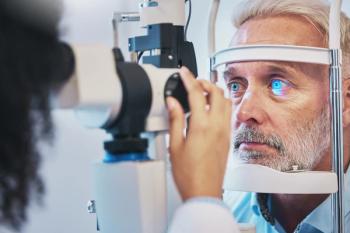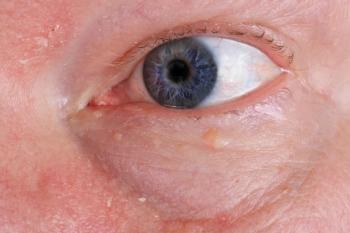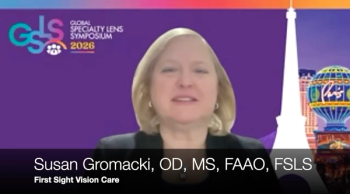
ARVO 2023: SightGlass Vision presents positive outcomes for myopia spectacle lenses
Positive 42-month Cypress axial length and cSER outcomes, presented at ARVO in New Orleans, reinforce myopia control safety and efficacy of Diffusion Optics Technology™ spectacle lenses.
At ARVO 2023, SightGlass Vision announced positive outcomes across several studies investigating the safety and efficacy of Diffusion Optics Technology™ spectacle lenses for patients with myopia. The lenses, designed to slow the progression of myopia in children, utilize thousands of small “micro-dots” to scatter light, thus reducing contrast on the retina to control myopia progression. Data from all of these studies, including the pivotal Cypress study extension, will be presented throughout ARVO 2023 in New Orleans, Louisiana.
“The extensive and rigorous science we are communicating at ARVO 2023 demonstrates the depth of our commitment to advancing myopia control, while also building additional confidence in the efficacy, safety, and overall performance of Diffusion Optics Technology spectacle lenses,” said Andrew Sedgwick, CEO of SightGlass Vision.
SightGlass Vision is unveiling 42-month data from the pivotal Cypress study extension, which demonstrated positive safety and efficacy of Diffusion Optic Technology spectacle lenses for children aged 6-10 (at the start of the study), including statistically significant improvements in axial length and cycloplegic spherical equivalent refraction (cSER) between test and control groups.1 The extension re-enrolled 98 patients from the original multi-site clinical trial, which had previously reported improvements in axial length and cSER.
Additionally, investigators used the Cypress trial to calculate age-independent myopia axial length growth to evaluate efficacy of the lenses.2 Even in persistently emmetropic eyes, axial length growth occurs during pediatric development, and it is often most aggressive before preadolescence. The investigators determined an age-adjusted physiological measure by comparing the age-matched emmetropic eye growth data from the Orinda Longitudinal Study of Myopia3 against the axial length growth observed in the original 3-year Cypress study. Participants in the test lens group demonstrated 0.23 mm (73%, P = 0.003) less pathological axial length change than the control group (test: 0.08 ± 0.06 mm; control: 0.31 ± 0.05 mm).
SightGlass, along with research partners, will present several scientific posters at ARVO 2023. Among them are a study from the Centre for Ocular Research & Education (CORE), which demonstrates that Diffusion Optics Technology spectacle lenses do not have significant effect on accommodative lag following short-term wear4; outcomes from an investigation at Indiana University demonstrate that wearers do not notice significant contract decreases while looking through the spectacle lens treatment zone5; and an additional Indiana-based study on the contrast-reducing micro-dots included on the spectacle lenses suggests that they do not limit high-quality spatial details and visual performance.6 Lastly, the SightGlass team is presenting their findings on the effect of social restrictions on myopia progression, which is based on the experiences of the North American participants in the Cypress study during the COVID-19 pandemic.7
The Diffusion Optics Technology lenses have entered commercial markets in China, the Netherlands, and Israel over the past 18 months, and they are undergoing preliminary market trials in other countries. SightGlass Vision operates as a joint venture of CooperCompanies and EssilorLuxottica.
References
1. Chalberg T, et al. Control of myopia using diffusion optics spectacle lenses: efficacy and safety study (CYPRESS) 42-month results. ARVO 2023 Annual Meeting presentation. 27 April 2023.
2. Laughton D, et al. Calculated age-independent myopic axial length growth in the CYPRESS clinical trial. ARVO 2023 Annual Meeting presentation. 26 April 2023.
3. Jones et al. Comparison of ocular component growth curves among refractive error groups in children. Invest Ophthalmol Vis Sci. 2005;46:2317-2327
4. Jabeen A, et al. Evaluation of the lag of accommodation with DOT spectacle lenses. ARVO 2023 Annual Meeting presentation. 27 April 2023.
5. Meyer D, et al. Evaluation of contrast sensitivity with diffusion optics technology lenses. ARVO 2023 Annual Meeting presentation. 27 April 2023.
6. Gantes-Nuñez, F, et al. Optical characterization of a diffusion optics technology ophthalmic lens designed for myopia control. ARVO 2023 Annual Meeting presentation. 27 April 2023.
7. McParland M, et al. Myopia progression before, during and after the COVID-19 pandemic in North American children. ARVO 2023 Annual Meeting presentation. 23 April 2023.
Newsletter
Want more insights like this? Subscribe to Optometry Times and get clinical pearls and practice tips delivered straight to your inbox.


